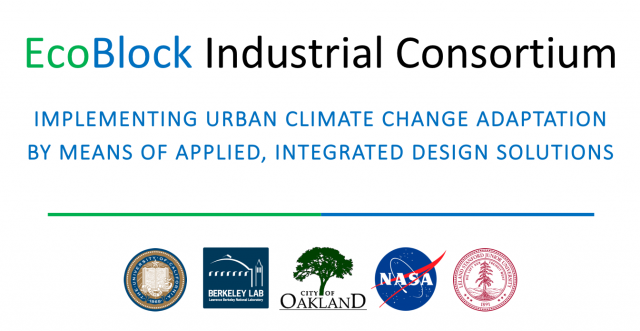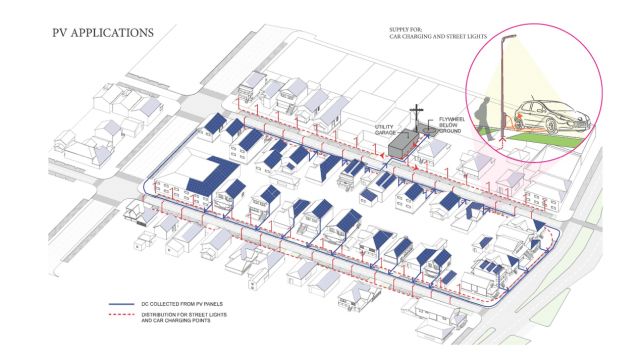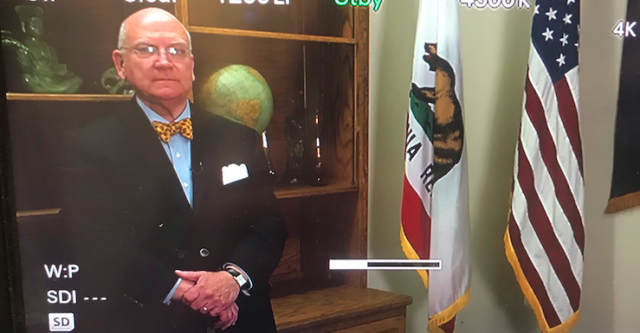Spotlight Kampala is a multi-institutional research collaboration of universities and community advocates that aims to shed light on the inequities faced by informal urban communities in accessing and utilizing electricity. Our data provides important baseline statistics on metrics of access like access rates, affordability, supply reliability and quality as well as an understanding of how community members perceive and navigate barriers to access. We aim not only to provide summary statistics, but to ground these learnings in the daily lived experience of Kampala’s informal residents. Community participation is a core objective of the work, with community members involved in each step of research design, execution, and dissemination. The project also focuses heavily on working closely with local stakeholders like the Government of Uganda’s Ministry of Energy and Mineral Development, the utility Umeme Limited, and community-based organization like ACTogether Uganda and the National Slum Dwellers Federation of Uganda.
For more information and contact with the project team, visit the Spotlight Kampala website.
Gordon received his Batchelor’s Degree with Highest Honors in Chemistry from Williams College (2013), and then conducted research on solar energy in Nicaragua, and then spending time as a Visiting Scholar at the University of Oslo where he conducted research on the usage of electric vehicles in Norway as a fellow with the American Scandinavian Foundation.
At UC Berkeley and in ERG, Gordon is a Graduate Research Fellow where he works with Dr. Susan Shaheen in the Transportation Sustainability Research Center, at Lawerence Berkeley National Laboratory, and in RAEL.
Present position:
Researcher, International Council on Clean Transportation
A recent graduate of Northeastern University with a B.S. in Industrial Engineering with minor in Law & Public Policy.
I intend to research the intersection of renewable energy technology, education, and specifically prison education programs focused on STEM. Ultimately, my goal is to work with formally incarcerated citizens as they prepare for re-entry into society. I aspire to work with renewable energy projects in Africa to fulfill my goal as developing into a World Class “Energy” Engineer.
Shuba is the co-director of the California Energy Commission sponsored project
” Engaging Communities in the Design of Sustainable Energy and Localized Futures (SELF)”
Among her many publications are a number that addresses the energy-access-affordability-climate nexus, including:
- The California Demand Response: Potential Study, Phase 3; Brian F.Gerke,Giulia Gallo,Sarah J. Smith, Jingjing Liu, Peter Alstone, Shuba V. Raghavan, Peter Schwartz, Mary Ann Piette, Rongxin Yin and Sofia Stensson.
- Translating climate change and heating system electrification impacts on building energy use to future greenhouse gas emissions and electric grid capacity requirements in California; Brian Tarroja, Felicia Chiang, Amir AghaKouchak, Scott Samuelsen, Shuba V. Raghavan, Max Wei, Kaiyu Sunand Tianzhen Hong, Applied Energy, 2018, vol. 225, issue C, 522–534
- Building a Healthier and More Robust Future: 2050 Low-Carbon Energy Scenarios for California. California Energy Commission. Primary Authors: Max Wei, Shuba Raghavan, Patricia Hidalgo-Gonzalez, Contributing Authors: Rodrigo Henriquez Auba, Dev Millstein, Madison Hoffacker, Rebecca Hernandez, Eleonara Ruffini, Brian Tarroja, Amir Agha Kouchak, Josiah Johnston, Daniel Kammen, Julia Szinai, Colin Shepard, Anand Gopal, Kaiyu Sun, Tianzhen Hong, and Florin-Langer James. Publication Number: CEC-500‑2019-033; March 2019
- Pathways to Decarbonize Residential Water Heating in California, Shuba V Raghavan, Max Wei, Daniel Kammen, Energy Policy 109 (2017) 441–451
- Adoption of Solar Home Lighting Systems in India: What might we learn from Karnataka? Harish, Iychettira, Raghavan, Kandlikar, Energy Policy, Vol 62, November 2013, pp ‑697–706.
- Assessing the impact of the transition to Light Emitting Diodes based solar lighting systems in India, Santosh Harish, Shuba V Raghavan, Milind Kandlikar, Gireesh Shrimali, Energy for Sustainable Development, Volume 17, Issue 4, August 2013, pp. 363–370.
Guangzhi is a PhD student in Energy Systems Analysis at Tsinghua University. He has bachelor’s degrees in Electrical Engineering and in Management from Tsinghua University. He has been a visiting student at the University of Bath and at the Israel Institute of Technology.
His work is focused on the role of carbon pricing and renewable energy deployment in China.
Guangzhi will be a visiting student at RAEL from October 2019- July 2020.
Current position:
Ph.D student in Electrical Engineering, Tsinghua University.
Dongran Liu is a doctoral student in the School of Economic and Management at North China Electric Power University. She has research interests in energy markets, optimization and risk management, and distributed energy resource planning.
At RAEL she is working on modeling the future of the Chinese electric power system using SWITCH. She is part of a partnership with European energy storage associations to examine the market opportunities and carbon benefits of the installation of a range of energy storage technologies.
She will be a visiting student in RAEL from October 2019 — August 2020.
Current position:
PhD student, North China Electric Power University
Samuel Carrara holds a Master Degree cum laude in Mechanical Engineering (Major: Energy and Mechanical Plants) and a PhD in Energy and Environmental Technologies, both from the University of Bergamo.
After working as an engineer in the gas turbine field, he is now junior researcher at FEEM. His main research interests include renewable energies, sustainable development, energy policies, climate and energy economics, advanced energy systems.
For my website, click here.
I am currently working as Senior Researcher Associate at UCL Institute for Sustainable Resources where I lead the finance research area of the GREEN-WIN project. I focus on climate and sustainability finance policies and governance arrangements in order to contribute to overcoming financial barriers to mitigation and adaptation.
Before joining UCL, I worked for the OECD (Green Growth Unit, Economics Department) as Marie-Curie Fellow, a two-year research grant funded by the European Commission. At the OECD I analysed the effectiveness of energy policies to boost energy investments in Europe. Prior to that, I worked for research centers (FEEM and ICCG) and institutions, including the Italian Association Energy Economics, where I was responsible for the Economic area (2009–2013).
During my PhD, I was visiting scholar at the Renewable and Appropriate Energy Lab, UC Berkeley under the supervision of Prof. Daniel Kammen (2010–2011). I have worked on a range of novel ways to overcome the first-investment costs of energy efficiency and renewable energy.
I got my PhD in Business Administration at Polytechnic University of Marche and University of California, Berkeley (co-tutorship of doctoral thesis) with a focus on energy financing policy. My research interests include renewable and energy efficiency deployment, climate finance and energy policy.
Kenji is a Ph.D. student with the Goldman School of Public Policy and a researcher in the Renewable and Appropriate Energy Laboratory. His current research interests include empirical studies and quantitative modeling on the effectiveness of renewable energy policies in developing and developed countries for effective decision making. He is also interested in developing better tools for quantitative assessment of the multiple benefits of climate policies such as energy access, job creation, and technology development and transfer.
Kenji has more than 10 years of professional experiences in the area of Japan’s and international environmental policies as a Deputy Director for Market-based Climate Policy of the Japanese Ministry of the Environment, a Managing Director of the Global Environment Centre Foundation, etc. For example, he has spearheaded and managed various government energy incentive programs for funding energy efficient and renewable energy projects in Japan as well as in Southeast Asia and Africa under the Joint Crediting Mechanism, bilateral cooperation scheme between 14 countries and Japanese Government. He has also initiated and led international cooperation initiatives on environmental policy planning, capacity building, and technology transfer focused on low-carbon city development with Japanese municipalities for Ho Chi Minh City (Vietnam), Vientiane (Lao PDR), and other cities. He has negotiated at COP 18 and 19 of the UNFCCC as an international negotiator of the Japanese delegation on technology transfer. Outside of environmental policies, he is a creator and a leading trainer of policy analysis training courses for Japanese policy professionals.
He holds an MPP with the Smolensky Prize (the Best Advanced Policy Analysis (master’s thesis)) from UC Berkeley, for which Dan Kammen was his APA advisor. Kenji has a MEng and a BEng in Chemical Engineering from University of Tokyo.
Management team: Harrison Fraker (Co-PI), Daniel Kammen (PI), Anthony Nahas (Project Consultant)


Research Motivation
- How to make millions of old, inefficient homes part of a clean-air, low-carbon & low resource-use future?
- How can block-scale solutions enable better climate-change adaptation & response strategies than individual, home solutions?
- How do you get block-scale inhabitant buy-in, and support from utilities, stage agencies and the cleantech sector?
Hypothesis:
- The block-scale is considerably more efficient & cost-effective than the individual house-scale in achieving resource efficiencies, and takes advantage of emerging energy generation legislation and information systems.
Presumption:
- The block-scale aggregates the flows across multiple units, enabling greater efficiencies and economies of scale
EcoBlock Project:
- Test & benchmark results in real-time, with true case-control capacity via a sister-block.
Urban Block Re-Purposing
Design Objective: Social & Technological POV
- people + energy + water + wastewater ==> lowering resource end-use in the built environment
- design & implement a pilot around neighborhood engagement
- demonstrate efficient, functioning block-scale energy, water & wastewater treatment-and-reuse platform & retrofit process
- prototype & blueprint to replicate, improve & scale-up.
Design elements for resource-use efficiencies:
- Block-scale retrofit: optimized integration & operation
- communal solar & smart grid è electricity, storage & EVs
- communal waste re-use è bio-methane for cooking load, irrigation & compost for local, sustainable food systems
- Home-scale retrofit: whole-house energy + water solutions
- weatherization, EE appliances + lighting, smart controls
- grey-water re-use + water-conserving fixtures
- Institutional pathways: regulatory maneuvering & financing
Urban Block Re-Purposing
Electricity
Water
Funding Needs
- $8M over two/three years, from multiple funding sources (corporate, philanthropic, etc.):
- Microgrid + storage $1.5 million / Waste-water $.9 million / Water $.3 million / Contingency$.3 million
Motivations:
- Radically improve building performance (energy+water) as urban adaptive response to climate change
- Social response & integration of community’s wishes
- Legal & regulatory pathways & advocacy
- Financial innovations based on ‘avoided costs’
- New ways to commercialize green water systems, clean energy technologies, microgrid–storage, DR, systems controls, FDD, behavior analytics, etc.
Upcoming UCTV film to feature the EcoBlock, with comments from:
Tim Schaefer | Deputy Treasurer, Public Finance | Office of California State Treasurer John Chiang |




You must be logged in to post a comment.